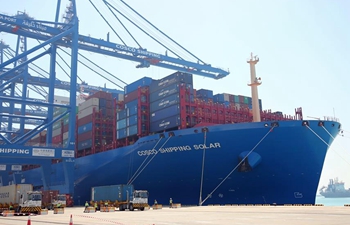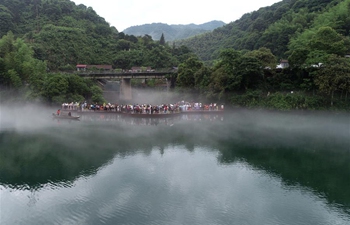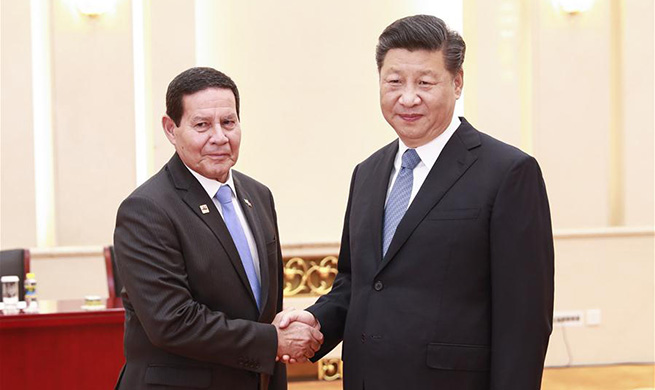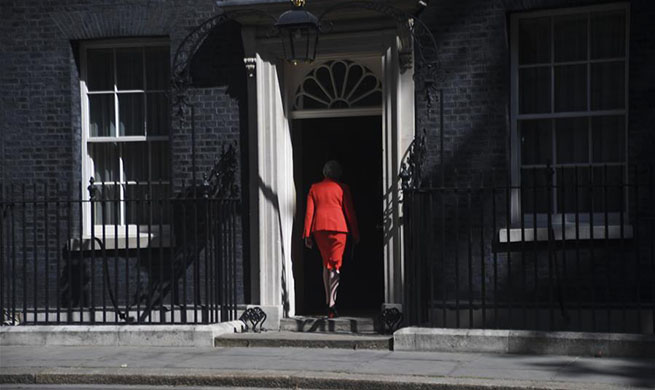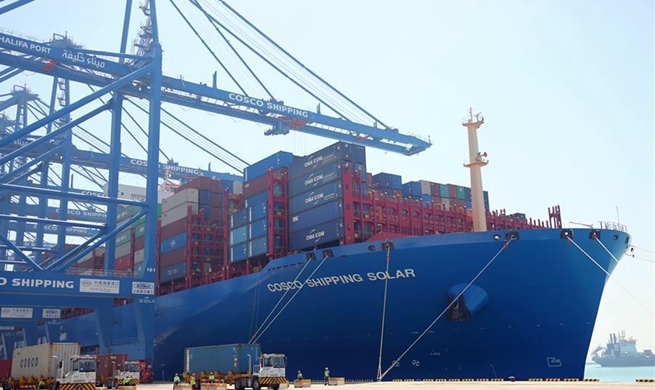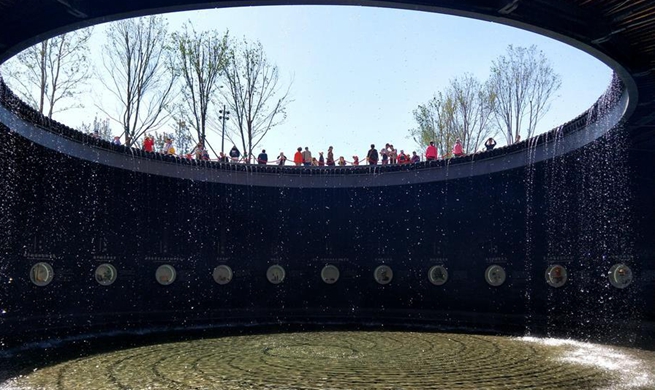BAGHDAD, May 25 (Xinhua) -- Iranian Foreign Minister Mohammad Javad Zarif on Saturday paid an official visit to Baghdad to discuss with the Iraqi leaders bilateral and regional situation.
Zarif, heading a high-level delegation, arrived in Baghdad in the afternoon and then held a meeting with Iraqi Prime Minister Adel Abdul Mahdi in his office.
The two sides "discussed relations between Iraq and Iran, as well as regional and international situations and means to remove the damage of sanctions and dangers of war on the two countries and the region," a statement by Mahdi's office said.
The two leaders "stressed the importance of security and stability of the region and how to maintain the nuclear agreement," the statement said without giving further details.
Another statement by the Iraqi presidency office said that Iraqi President Barham Salih received Zarif and his accompanying delegation in the evening.
Salih stressed that Iraq "seeks to be a converging spot for the brotherly and friendly countries as well as a stabilizing factor in the region in order to build balanced ties with all countries, especially the neighboring ones in accordance to common interests," the statement said.
During the meeting, Salih and Zarif discussed the latest political developments at the regional and international levels.
They also talked about the "necessity to prevent war and escalation as well as to rely on calmness and adopt constructive dialogue so as to consolidate the foundations of peace in the region," the statement said.
They also affirmed the "importance of exerting joint efforts to remove the damage of the (U.S.) sanctions on the region and reach political solutions to the current (regional) crises," it added.
Zarif was also scheduled to hold meetings with Iraqi Parliament Speaker Mohammed al-Halbousi and his Iraqi counterpart Mohammed al-Hakim before leaving the country on Sunday.
On Saturday afternoon, Zarif arrived in Baghdad amid rising tensions between Washington and Tehran, which came after U.S. President Donald Trump decided not to re-issue the sanctions waivers for major importers to continue buying Iran's oil when they expired in early May.
On May 15, the U.S. State Department ordered the non-emergency U.S. employees working in both the embassy in Baghdad and the consulate in Erbil to leave Iraq, a U.S. embassy statement said.
Earlier, the U.S. military said that the U.S. forces were on high alert in Iraq and Syria over fears of "imminent threats" from Iran-backed forces in the region.
On May 21, Mahdi said that Iraq will send delegations to the United States and Iran to ease the tension in the Middle East.
"Iraq has high-level contacts (with parties of dispute), and we are going to push for calm between Washington and Tehran, but it is not a mediation," Mahdi said in a press conference in Baghdad.
The United States has also increased its military buildup in the region recently by deploying an aircraft carrier, bombers and anti-missile systems, citing a threat of Iranian attack.





